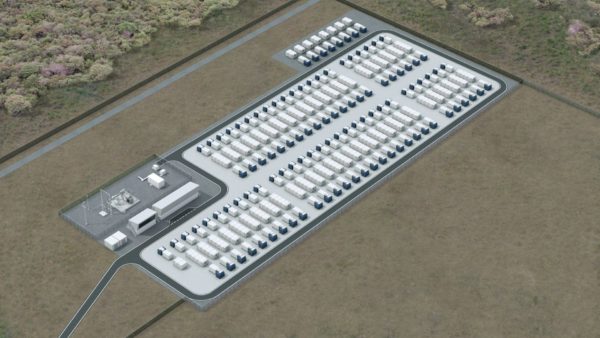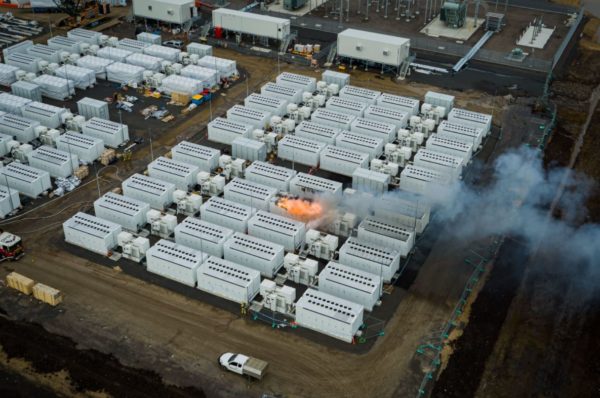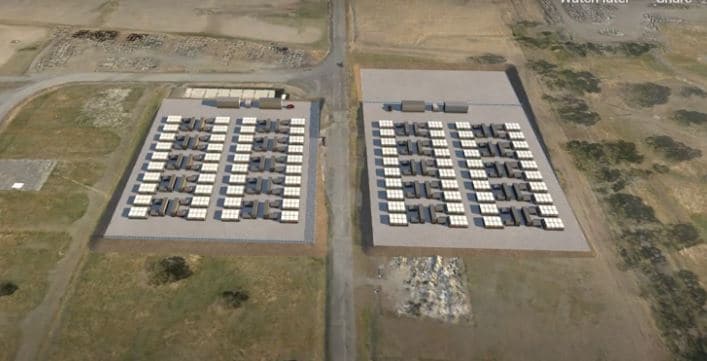AGL has received approval from the Victorian Department of Environment, Water, Land and Planning for the development of the proposed 200 MW big battery, with four hours of storage, at the Loy Yang power station
AGL chief operating officer Markus Brokhof said the approval will allow the energy giant to move forward with assessing the economics and viability of the project.
“As the largest ASX operator of renewables assets, a key focus is to invest in storage and firming capacity to ensure we continue to provide reliable and affordable electricity to households and businesses,” he said.
The proposed Loy Yang big battery is part of AGL’s planned national roll-out of 850 MW of grid-scale batteries with the gen-tailer confident its coal power generation sites can leverage off their existing access to the power grid, road, rail and water infrastructure.
“Our generation sites provide rare and unique redevelopment opportunities as they are established sites with a surplus of land, road and rail access, transport facilities and storage infrastructure embedded in the environment,” Brokhof said.
“As we continue on our pathway to net zero by 2050, we will progress our plans to develop these sites into integrated industrial energy hubs, with the Latrobe Hub set to create regional jobs and opportunities well into the future.”
Among AGL’s pipeline of grid-scale batteries is the 250 MW/1,000 MWh battery being developed at the site of its gas-fired Torrens Island power station in South Australia. AGL has indicated construction of the battery will commence before the end of the year.
AGL has also received the tick of approval from the New South Wales (NSW) Department of Planning, Industry and Environment (DPIE) for a 50 MW/100 MWh battery in Broken Hill and is seeking planning approval for a 150 MW battery with one hour storage to be developed at the site of its Liddell Power Station in the Hunter Valley.

Image: AGL
At Liddell, the coal-fired generator scheduled to close in April 2023, AGL has committed to a 150 MW battery but is seeking approval from the NSW government for a big battery of up to 500 MW and four hours storage.
AGL already operates the 30 MW/8 MWh Dalrymple North battery in South Australia.
Should AGL reach a final investment decision on the Loy Yang grid-scale battery, the project would be part of Accel Energy following AGL’s proposed demerger.
The development approval for the Loy Yang grid-scale battery follows the registration earlier this week of Neoen’s 300 MW/450 MWh Victoria Big Battery (VBB).
The Australian Energy Market Operator (AEMO) officially registered the VBB on Tuesday to deliver Frequency Control Ancillary Services (FCAS).
Under the System Integrity Protection Scheme (SIPS) contract Neoen has signed with AEMO, the VBB will unlock up to an additional 250 MW of peak capacity on the existing Victoria to NSW Interconnector.

Image: CFA
The registration follows weeks of testing and commissioning, which was initially delayed after a fire in two of its Tesla Megapacks in late July set the process back by several months.
The VBB is the fourth big battery in operation in Victoria with another at the Gannawarra solar farm (25 MW/30 MWh), one at a Ballarat (30 MW/30 MWh) and a fourth at the Bulgana wind farm (20 MW/34 MWh).
EnergyAustralia has also announced plans to develop a 350 MW/1400 MWh big battery at the site of its Yallourn power station before the closure of the coal-fired plant in mid-2028.
Melbourne-based renewables developer Syncline Energy has also revealed plans for a 600 MW/2400 MWh battery storage project to be built 25 kilometres west of Melbourne.
The Melton Renewable Energy Hub has been fast tracked by the Victorian government under its planning scheme amendment, and Syncline hopes to reach financial close by the second quarter of 2022, with production to begin by the second half of 2023.
This content is protected by copyright and may not be reused. If you want to cooperate with us and would like to reuse some of our content, please contact: editors@pv-magazine.com.









Why is it, electricity distributors are turning off home electric generators “Every Day” in the peak power production period for many hours. This isn’t what was sold to rooftop generators. It’s simply not good enough, it wasn’t what was sold to generators. So if you are contemplating rooftop solar, plan a battery as well, instead of being screwed over “Again” by distributors. Fill the battery first.